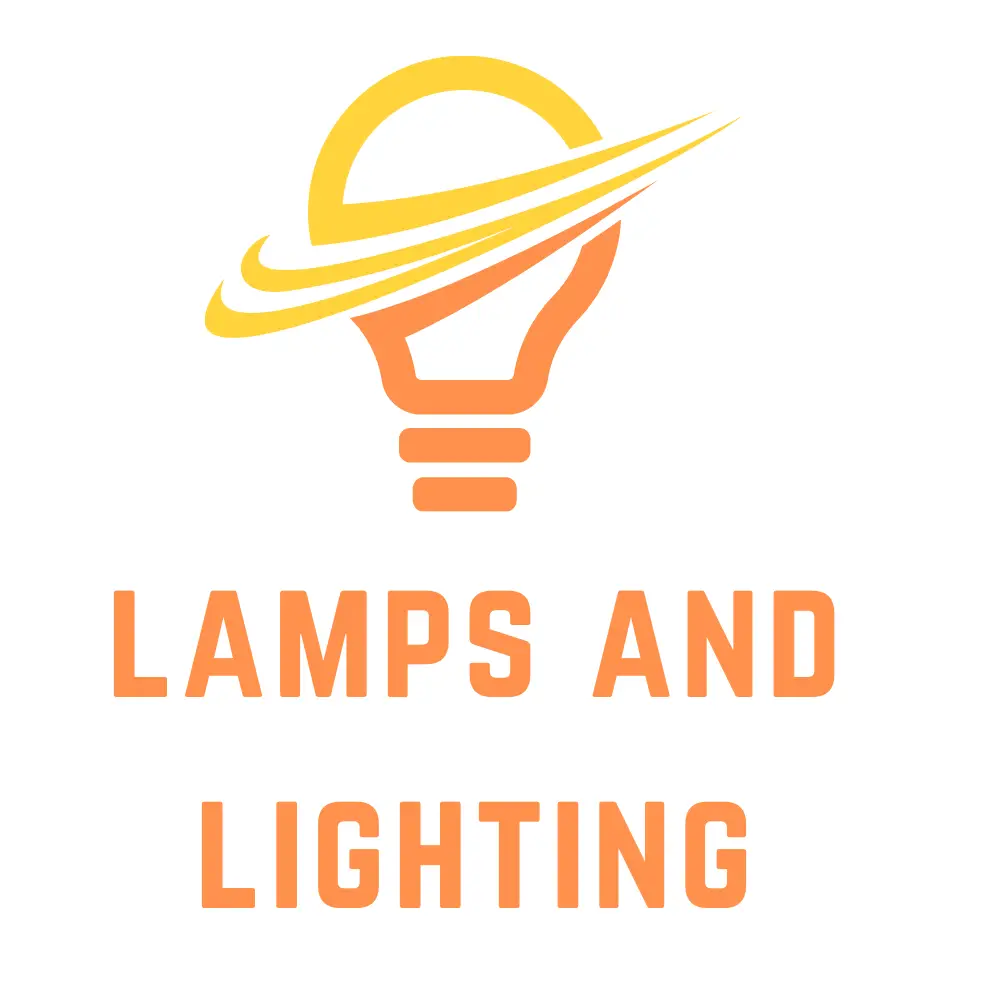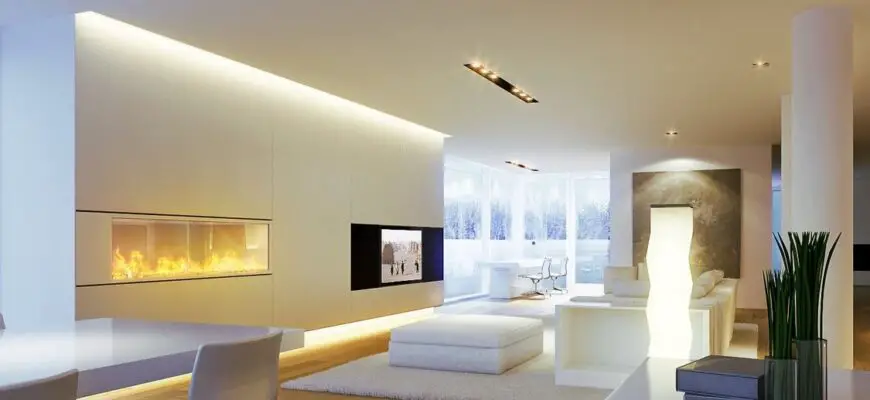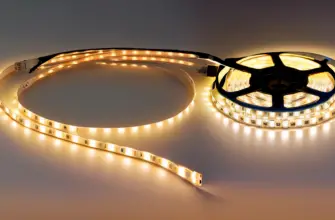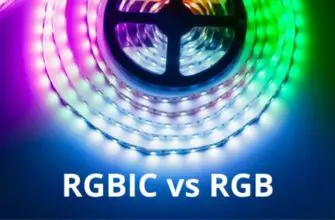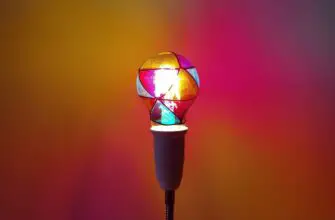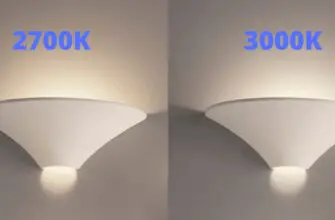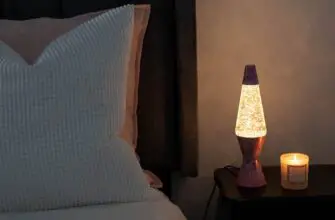There are endless indirect lighting ideas to help you give your room a cozy atmosphere. In addition to giving the impression of more space, indirect lighting creates a pleasant atmosphere by accentuating the lines of the area in which it is located.
What is indirect lighting?
The most traditional way to illuminate a space is by using ceiling fixtures. The direct light of such fixtures is directed only in one direction and is poorly diffused. Indirect lighting, on the other hand, directs light in such a way that it is reflected from its surroundings and scatters across the room.
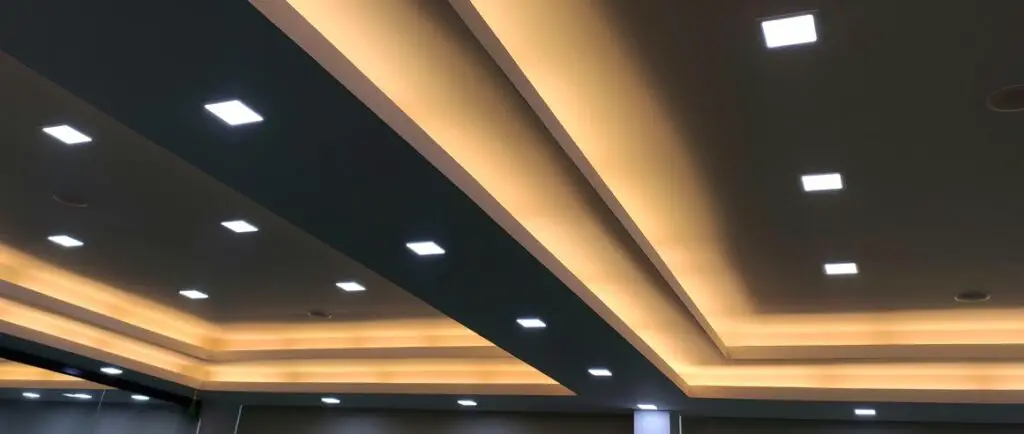
The use of indirect lighting is becoming increasingly popular. A huge advantage of this type of lighting is that it can be installed anywhere. Indirect lighting can both highlight certain pieces of furniture and illuminate the room.

Direct and indirect lighting
In direct lighting, light from a light source can be directed directly into a space. In indirect lighting, light is reflected from the ceiling or wall and then returned to the room by the lighting fixtures.

Combination of direct and indirect lights
Direct lighting can be used for basic or accent lighting, depending on installation methods. However, for certain activities, ambient lighting may be too dark. Therefore, a combination with direct ceiling light is usually recommended.
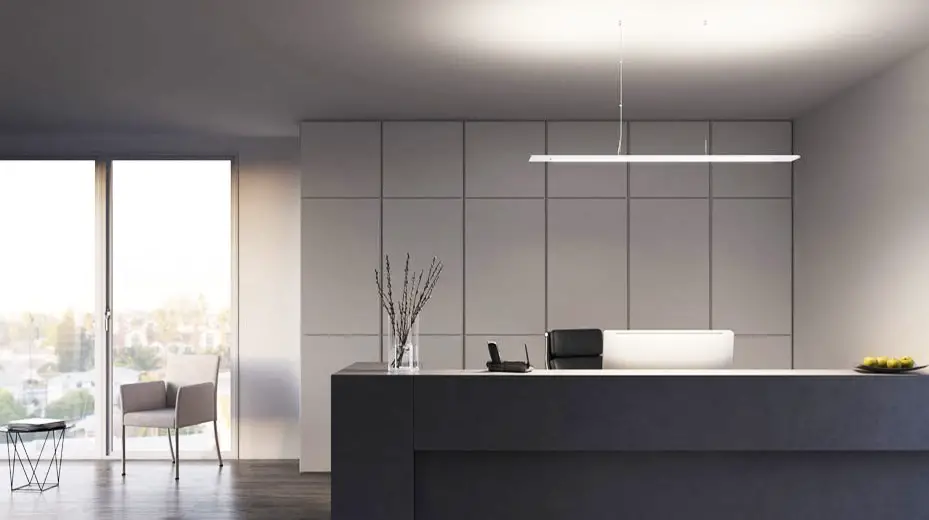
What are the advantages of indirect light?
The advantage of indirect lighting is that it reflects light off the wall or ceiling, making it soft. It distributes light evenly and does not create shadows or glare.
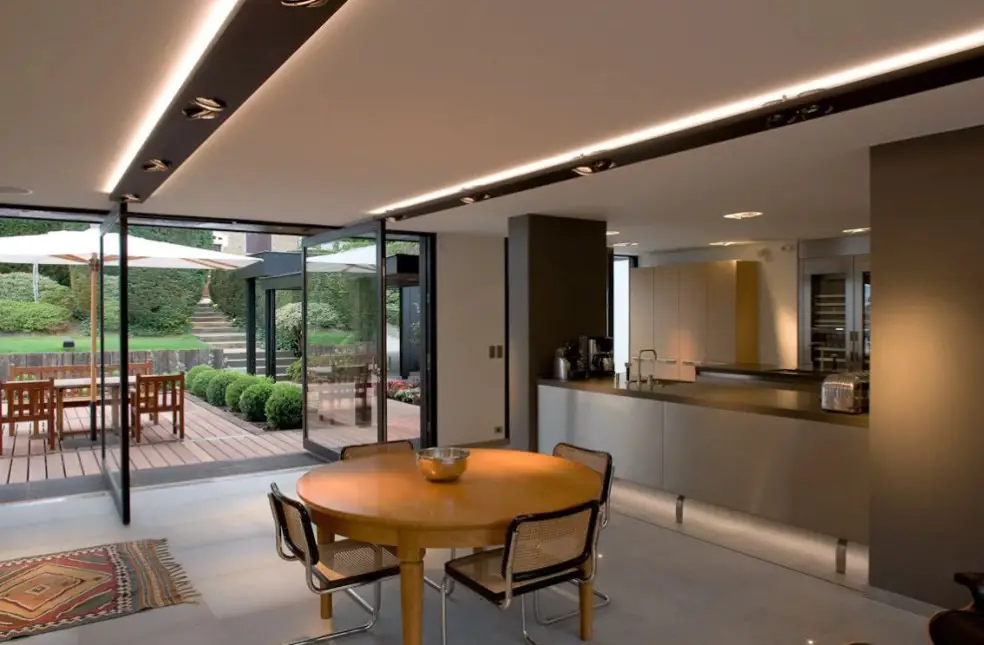
Using RGB LED lights, you can easily change any color temperature. Often these colors are combined and have dimming controls. This gives the user the ability to choose between different settings of light mood.

Advantages of indirect lighting
Indirect lighting looks soft, and even, and doesn’t glare or cast dark shadows on areas. It provides the most comfort. You can create ambient light using a variety of lighting fixtures.

Disadvantages of indirect lighting
Because of the low impact of indirect light, causes eye fatigue. This explains the use of an indirect light source as an alternative to the ceiling light.

Indirect lighting in the living room
Living rooms are some of the most used rooms in an apartment, so light should be natural and relaxing. An indirect light source can be installed as a supplement to the main one. Many LED strips can be adjusted for color, temperature, and brightness.

Indirect lighting may not be enough to illuminate living rooms. If you dine or read in the living room, you need a lot of light. In this case, you need a combination of direct and indirect light.

Indirect kitchen lighting

Indirect lighting in the kitchen is mainly needed to create coziness. It can be placed on the walls or under the cabinets.

Since cooking in the kitchen requires bright light, ambient light can only be used as a supplement. The main bright light should be located in the light fixture on the ceiling.

Types of indirect lighting
Indirect ceiling lights

Indirect lighting usually requires the LED light source to be hidden under ledges or wall edges. Ceiling lights normally emit direct light.

In addition to direct lighting, LED strips on walls and cove lighting on a false ceiling can provide indirect lighting. They are easy to install, in addition to an existing light fixture.
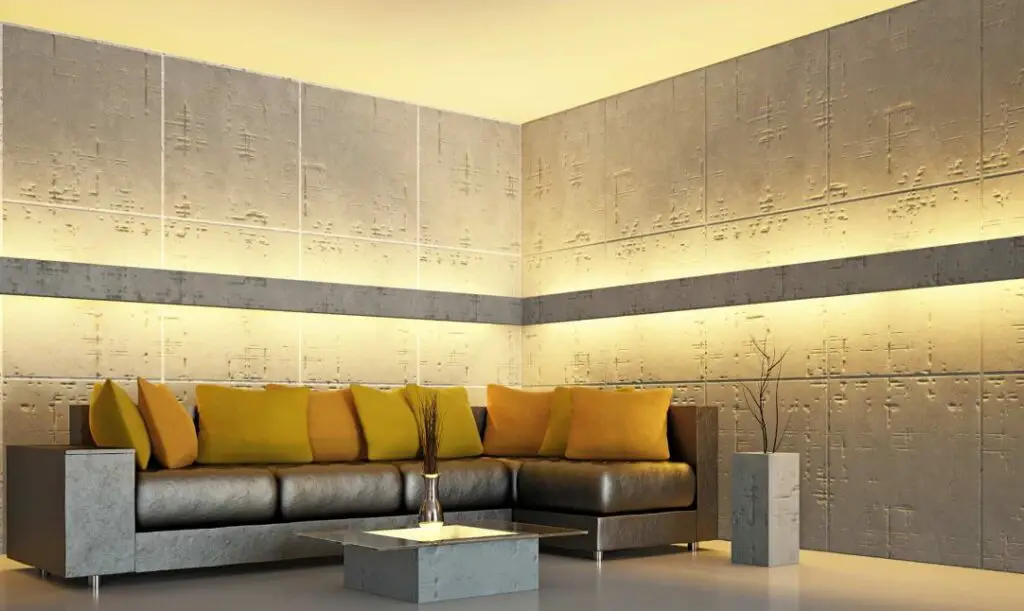
Indirect wall lighting

If you have a wall with relief, you can highlight it with an LED strip. This will accentuate the relief of the wall and give it soft shadows. The light strip or LED lights can be placed under the panels either at the top of the wall or at the bottom.
If your walls and ceilings have baseboards and panels, frames and niches, you can place light sources on them and conceal them easily. These indirect lighting ideas are extremely effective for adding volume to a space.
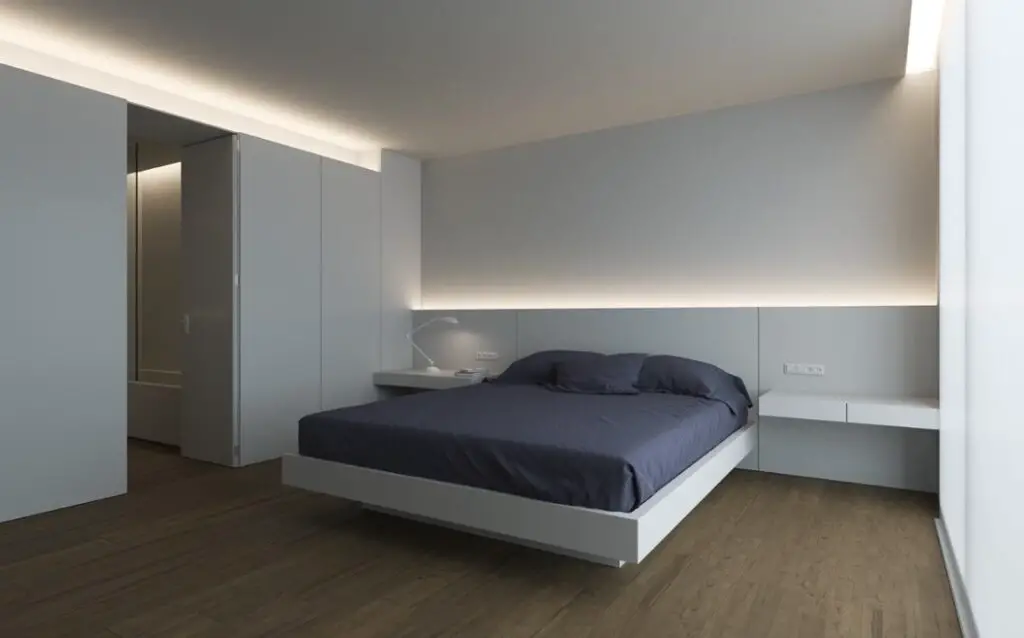
Stairway or pathway lighting

There is a practical solution to the issue of lighting stairs – the use of LED strips. This solution ensures the safe operation of stairs in private homes, in rooms between floors, as well as in swimming pools. LED strips, properly installed, beneficially decorate the interior.

Illuminating sink/vanity

Another smart idea is to use indirect lighting in the bathroom to create a beautiful interior. A cabinet with accent lighting and mirrors has an unusual look.

Masked bedroom lighting
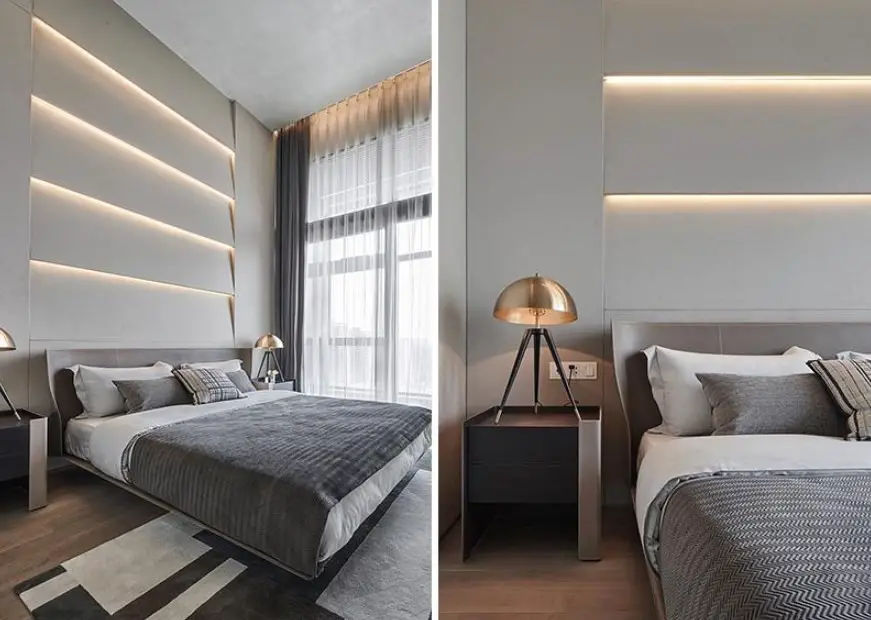
In addition to a bright chandelier in the bedroom, you can use indirect light sources. This arrangement of fixtures gives the bedroom a softer look. The wall and ceiling seem to play with the accent lighting and cast aesthetically pleasing shadows on the surface of the room.

Backlit mirrors
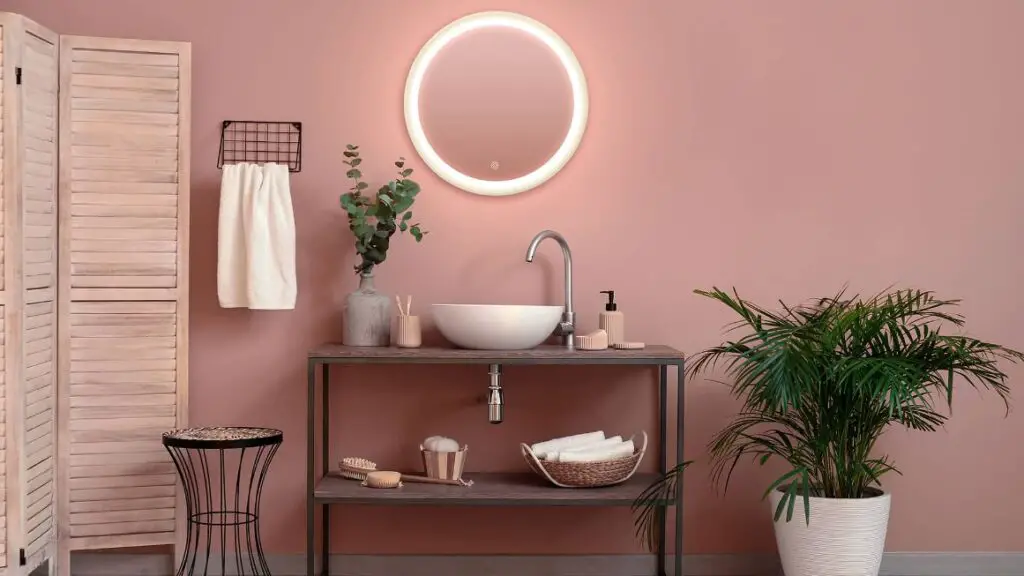
Indirect lighting has become relatively simple in recent years thanks to technological innovations. A built-in mirror with side illumination gives a stunning glow. Such a mirror gives a nice ambient light on both sides.

Undercabinet lighting for your kitchen
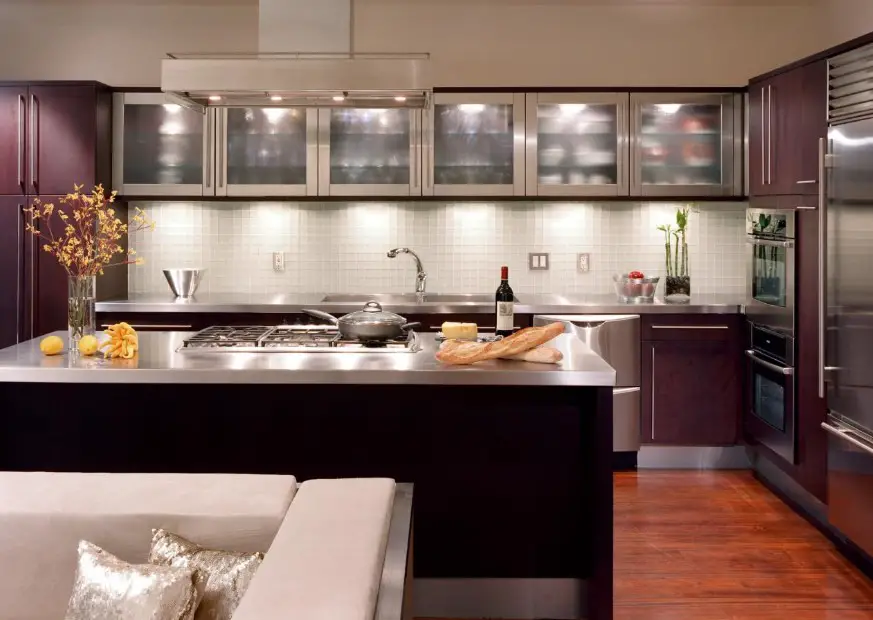
A stunning kitchen looks even more inviting when illuminated by under-cabinet lighting. It will brighten the countertop, but discreetly – creating the perfect space. If you combine such a light fixture with a quartz countertop, it will make the kitchen look bigger and brighter.

Furniture that illuminates the room
The basic rule of indirect lighting is that the light in the rooms does not come from one direct source. In the bedroom, for example, the headboard of the bed is illuminated, which gives the bedroom a surprisingly diffused light. The space creates an atmosphere of warmth.
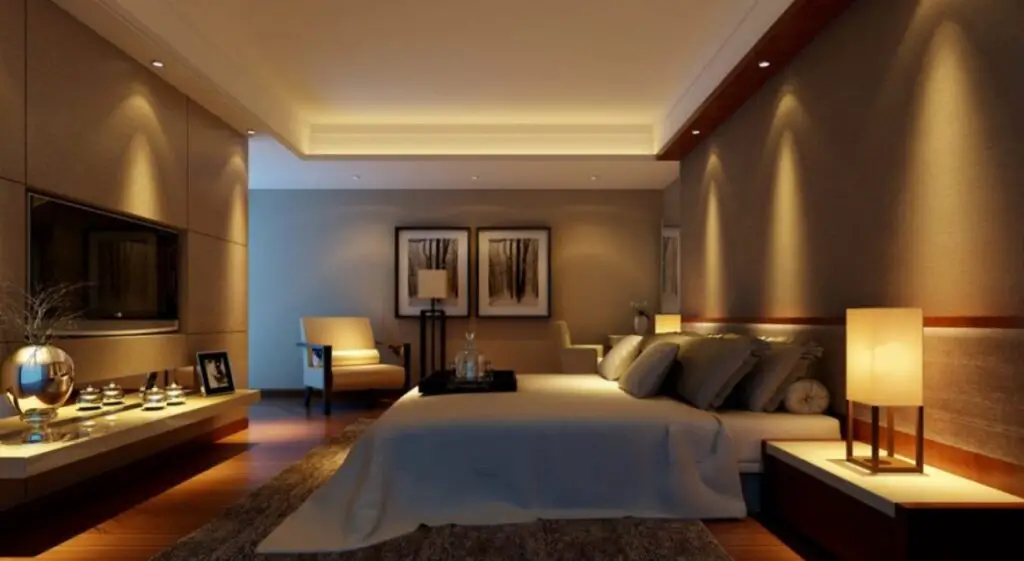
Conclusion
Adding indirect lighting to an apartment can give the space a modern and elegant look. Few people think about the fact that effective apartment lighting, in addition to its main function, is the most important tool for organizing the entire interior composition.
It is the light that determines how expensive furniture will look. Therefore, it is important to know the design subtleties when planning the appearance of any space. I hope that these indirect lighting ideas have helped you figure out how to organize the perfect interior.
Read also: Why are my LED lights different colors? Detailed answer to a popular question
FAQ
What is an example of indirect lighting?
Examples of indirect lighting include room ambient lighting, sunlight coming in through curtains and light reflecting off glass and mirrors.
Why is indirect lighting better?
Indirect lighting reduces eye strain by reducing glare, allowing you to see better. The use of decorative lighting is an important element of interior design for the elderly and other visually impaired groups.
Where are the best places to incorporate indirect lighting in a bedroom?
Indirect lighting can be added behind the headboard, under the bed frame, or along the top edges of the walls in a bedroom. It creates a serene atmosphere, perfect for relaxation.
What is indirect lighting, and how does it differ from direct lighting?
Indirect lighting refers to a type of lighting design where the light source is not directly visible. Instead, light is bounced off walls, ceilings, or other surfaces, creating a soft, diffused glow. Direct lighting, on the other hand, shines light directly into a specific area or space.
What types of fixtures are suitable for indirect lighting in a living room?
Cove lighting, LED strips, and wall-mounted fixtures are popular choices for indirect lighting in living rooms. These fixtures can be concealed to provide subtle, atmospheric lighting.
Can indirect lighting be installed outdoors, such as on patios or balconies?
Yes, outdoor-rated indirect lighting fixtures can be installed on patios, balconies, or gardens. These fixtures are designed to withstand outdoor conditions, providing elegant and subtle illumination to outdoor spaces.
